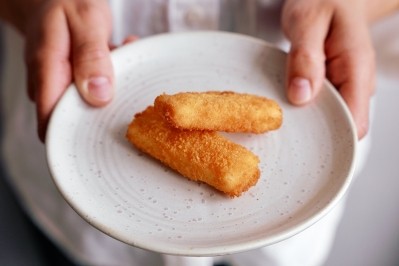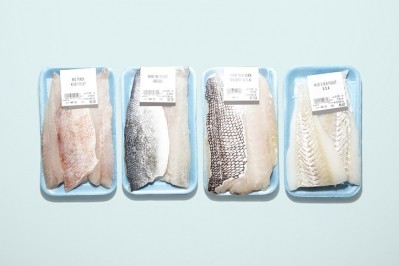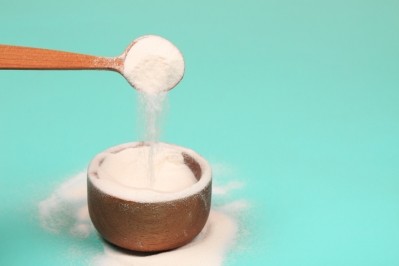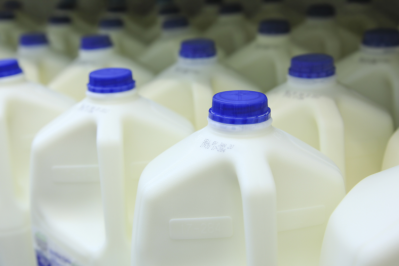Mermade makes cell-based scallops with circular aquaponics tech: ‘Our technology is relevant for the entire cell-based meat industry’
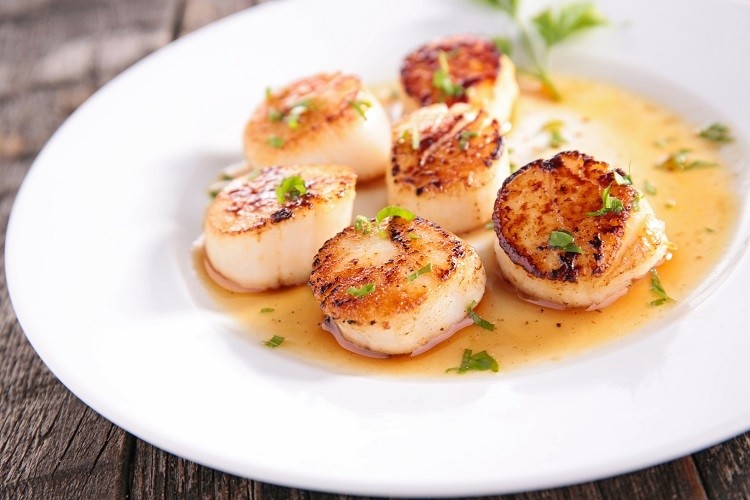
Jerusalem-based Mermade Seafoods is leveraging cellular agriculture to put ‘more sustainable’ seafood products on shelves. The company is working on a line of seafood alternatives to be produced in a bioreactor, rather than the ocean, starting with the scallop.
But in an industry first, the start-up is developing a circular method growth media platform leveraging aquaponics technology. “We’re the only ones doing this,” Mermade Seafoods co-founder and CEO Daniel Einhorn tells FoodNavigator.
‘We need more affordable, sustainable, tasty and healthy protein’
Mermade was created by three co-founders – CEO Einhorn, CTO Dr Rotem Kadir, and COO Dr Tomer Halevy – in response to the agri-food industry’s negative environmental impact. Globally, the sector is responsible for an estimated one-quarter of all greenhouse gas emissions.
“Not only do we have the imminent climate crisis, and we need to make a drastic change by 2050, when we’ll have a global population of 10bn people,” Einhorn explained.
At the same time, demand for protein is on the rise. By 2050, overall protein consumption is expected to double and marine-based proteins are predicted to take a growing market share.
This is another reason for concern, suggested Einhorn. The health of the oceans is ‘deteriorating fast’, he told this publication.
“I’m not sure that everyone understand that the health of the entire planet is reliant on the health of the oceans, which supplies 50% of the oxygen and absorbs carbon dioxide. It’s all connected.
“In short, we need a more affordable, sustainable, tasty and healthy protein source.”
Combining aquaponics with cellular agriculture
Like a growing number of start-ups, Mermade believes the solution lies in cellular agriculture. However, the start-up believes cell-based meat can be produced even more efficiently and sustainably – and is turning to aquaponics to make this happen.
Aquaponics combines aquaculture – the growing of fish and other aquatic animals – with hydroponics, whereby plants are grown without soil. Essentially, the aquaculture water provides the nutrients for the plants to grow.
Mermade’s solution leverages aquaponics technology to limit the amount of waste in cell-cultured protein production, explained CTO Dr Kadir.
“The problem with [current cell-cultured meat production] is that it is very costly and does not fully take into account the massive scale-up required in the future. During the growth cycle, the cells produce a lot of waste – mostly ammonia, phosphates, lactic acid, and metabolites – that are excreted into the media during the proliferation phase,” he told this publication.
Most companies discard this spent media, which still contains valuable biological components, before replacing it with new media, we were told. Yet spent media should not be considered ‘waste’, the CTO stressed: “It still contains a lot of good nutrients that the cells didn’t get a chance to consume.”
Mermade is working to employ the concept of aquaponics on a cellular level. It has coined this merging of these two technologies ‘cytoponics’.
The company is taking what the cells ‘produce and excrete’ into the media, which is predominantly ammonia and other ‘wasteful’ products, and transferring it into another bioreactor containing microalgae.
The ammonia-rich ‘waste’ product enables the production of algal biomass, which in turn produces ‘clean and oxygenated’ water. Mermade can then use that biomass to feed its cells. “It’s a circular process with almost no ingredients wasted or thrown away,” explained Dr Kadir.
Mermade expects this process will allow it to reduce production costs ‘dramatically’. “This is a real gamechanger in the industry.
“The technology we’re developing is going to be relevant for the entire cell-based, pharma, and alternative protein industries whenever companies are using cells.”
As the ‘only ones’ in the industry doing this, Mermade says it is truly rethinking cell-cultured protein production for the food industry. “We know the hurdles this industry needs to face to be viable, sustainable, and scalable, which got us thinking: How can we look at this differently and bring a new solution to the industry?” Dr Kadir recalled.
Homogenous scallops for reduced time to market
Indeed, this is where Mermade differs from other cultivated meat start-ups working hard to develop cell-based beef, chicken, and seafood. Rather than putting all its energy into the final product on the plate, Mermade is placing greater emphasis on the process.
That is not to say the start-up does not have a product pipeline and strategies in place to reach the end consumer. Centring on seafood in general, Mermade plans to start out with cell-based scallops.
The reason for this is at least two-fold, CEO Einhorn explained: From an R&D perspective, scallops have the ‘most simple shape and texture’ to replicate of all meat analogues. And secondly, conventional scallops are regarded a premium, expensive seafood, making price parity less of a challenge.
Further, scallops are ‘well-liked’ and ‘super nutritious’. In terms of market size, scallops are worth an estimated $8bn, which adds to appeal for disruption.
![Founders[1] mermade](/var/wrbm_gb_food_pharma/storage/images/_aliases/wrbm_large/media/images/founders-1-mermade/15498986-1-eng-GB/Founders-1-mermade.jpg)
“Imagine if we managed to achieve [a fully circular aquaponics model] and then tried to come up with a whole cut steak product, which would be yet another completely separate R&D feat and a very hard one at that,” said the CEO, suggesting going after a technically challenging product would extend the start-up’s time to market.
“I wouldn’t call [cell-based scallops] low hanging fruit, because the really high hanging fruit here is the scalable process. That’s the Holy Grail of the industry.”
So just how ‘simple’ is a scallop to replicate? Well, as the CEO pointed out, scallops are rarely served in its shell. For the most part, they are sold simply as the adductor muscle – that recognisable ‘golden medallion’. In terms of texture, it’s ‘pretty firm’ and homogenous throughout the cut.
“It’s so homogenous,” explained Einhorn. “You don’t feel like you’re eating the muscle texture of steak, nor is there a separate fatty tissue. No matter where you cut the muscle, it is the same texture. That’s the huge advantage when it comes to food engineering efforts.”
To make a large-scale impact, Mermade will need to go after more than one market segment. While cell-based scallops will serve to ‘drive business growth and profit’, to ‘transform the entire industry’ the start-up plans to use its scallop products as a ‘foothold’.
“We’re going to show to the industrial world that we can commercialise a cell-based seafood product…and then replicate that success in other seafoods with our core technology.”
Next up in the pipeline will likely be other marine molluscs, and then potentially crustaceans.
Where to commercialise?
Mermade predicts its first product will reach the market within the next three years.
To achieve this, the company will have to undergo regulatory approval processes – and depending on the region, some will be more stringent than others.
In Singapore, for example, a cell-cultivated chicken ingredient has already been approved for consumption. “We are aware that regulatory approvals in Asia could be faster, and we are anticipating further regulatory advancements in that region,” said Einhorn. “Also, the Asian market consumes more seafood, scallops, and shellfish in general. So that’s certainly a market we’re interested in.”
Elsewhere, Mermade has its eyes on the US. It’s the ‘second largest market’, and the start-up anticipates adoption to be ‘more predictable’. “It’s a big market inclined to adopt sustainable alternatives.”
![Typical_day_in_the_lab[1] mermade 2](/var/wrbm_gb_food_pharma/storage/images/_aliases/wrbm_large/media/images/typical_day_in_the_lab-1-mermade-2/15498737-1-eng-GB/Typical_day_in_the_lab-1-mermade-2.jpg)
![A_culture_of_isolated_scallop_cells_(2)_(2)[1] mermade](/var/wrbm_gb_food_pharma/storage/images/_aliases/wrbm_large/media/images/a_culture_of_isolated_scallop_cells_-2-_-2-1-mermade/15498755-1-eng-GB/A_culture_of_isolated_scallop_cells_-2-_-2-1-mermade.jpg)
